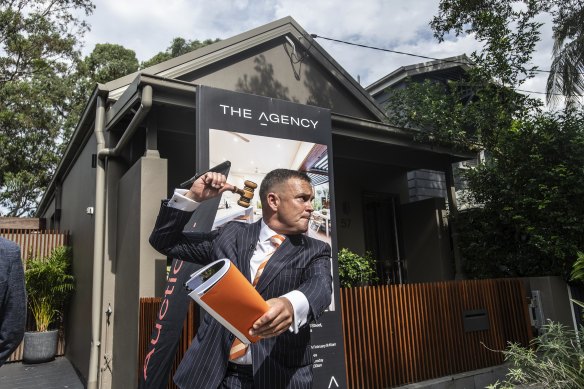Combined, the union says its ideas raise up to $25 billion in revenue that could be pumped back into services such as the National Disability Insurance Scheme and healthcare. It also backed reforms to regulations for planning and construction to get more properties built.

The ACTU is proposing changes to negative gearing and capital gains tax that it believes would help younger Australians into the property market.Credit: Steven Siewert
Asked whether the government was open to changing tax concessions for property investors on Sunday, Watt said its tax policies had not changed.
“When it comes to the roundtable, what we’ve said is that we don’t want to be unfairly limiting the kind of ideas that can be discussed, and we haven’t been getting into ruling things in or ruling things out,” he said.
“There’ll be a really terrific opportunity for all of these ideas from unions, from businesses, from think tanks, to be discussed at the roundtable. And what we’re looking to do is to build consensus across the community on all of these kind of issues.”
But the Business Council of Australia’s chief executive, Bran Black, quickly rejected the ACTU’s submission.“Ad hoc tax grabs are the opposite of supporting higher living standards for all Australians,” he said on Sunday.
Loading
“This magic pudding approach of taxing more to fix productivity should be dismissed if we are serious about solutions at the roundtable.”
The BCA and other industry groups also lashed a suggestion from the Productivity Commission last week to cut the company tax rate while introducing a world-first cashflow tax.
The commission will provoke industry further on Monday, when it releases its second of five reports, this time focusing on the clean energy transition. It has been an advocate of an economy-wide carbon price for almost two decades, arguing it is the most cost-effective and quickest way to reduce emissions.
In its report, the commission argues for the creation of an independent agency that would effectively set the “implied carbon prices needed to meet Australia’s emissions targets”. Farmers and household gas whitegoods would get caught up in the commission’s plan in what would prove a politically fraught move.
Loading
The commission also backs broadening the safeguard mechanism – a requirement on firms that emit 100,000 tonnes of greenhouse gases a year – and reducing the emissions limit. It says a limit of 25,000 tonnes a year would be “reasonable”.
One of the government’s most popular greenhouse-cutting policies has been fringe benefits tax exemptions on electric vehicles. But the commission says such subsidies, including the FBT exemption and state stamp duty concessions, should be axed.
The National Automotive Leasing and Salary Packaging Association pushed back, saying uptake was greatest in outer working-class suburbs. “It’s the key national policy initiative that has driven EV demand to where it is today – without it demand would materially stall,” they said.
The commission also backs an overhaul of the nation’s environmental laws, including the creation of stricter deadlines for energy transition projects to be approved and the creation of a bureaucrat “strike team” to clear through red tape currently delaying renewable projects.
Cut through the noise of federal politics with news, views and expert analysis. Subscribers can sign up to our weekly Inside Politics newsletter.

